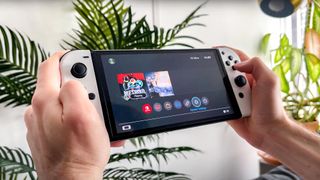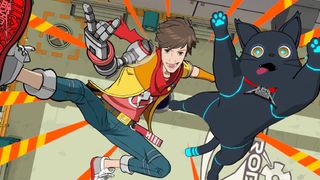Gaming
Explore Gaming
Latest about Gaming

Memorial Day Nintendo Switch deals 2024 — best early sales right now from $5
By Millie Davis-Williams published
Memorial Day Nintendo Switch deals have discounted games, accessories and more. Check out the best deals I’ve found from across the web.

Discord: Everything you need to know
By Alex Wawro last updated
Discord is one of the most popular platforms for chatting with friends or streaming games. Here's what you need to know about the popular app.

Ultimate guide to Twitch: The tips, tricks and gear you need
By Michael Andronico, Roland Moore-Colyer, Denise Primbet last updated
Interested in becoming a Twitch streamer? Here's everything you need to know.

PlayStation Store sale has essential PS5 games from $2 — here’s my 15 favorite deals
By Rory Mellon published
PlayStation May Savings sale includes big discounts on must-play games including "Hi-Fi Rush", "Resident Evil 4" and more.

NYT Strands today — hints, spangram and answers for game #53 (Thursday, April 25, 2024)
By Alan Martin published
We help you find today's Strands answers with some useful hints and tips to win.

Today's Wordle hints and answer — solution #1,041, Thursday, April 25
By Alan Martin last updated
Find out what today's Wordle hint and answer is and get some hints for it, plus see the solutions to previous games.

The best PS4 games in 2024
By Marshall Honorof last updated
The best PS4 games encompass a wide variety of titles, from open-world samurai adventures to epic sci-fi odysseys.

The best PS5 headsets in 2024
By Dave Meikleham last updated
From budget wired models to top-tier peripherals with crystal-clear mics, these are the best headsets for PS5 right now.
Sign up to get the BEST of Tom’s Guide direct to your inbox.
Upgrade your life with a daily dose of the biggest tech news, lifestyle hacks and our curated analysis. Be the first to know about cutting-edge gadgets and the hottest deals.


